
This is going to be an unpopular opinion: I believe that consuming news obtained through the recent hack of Sony Entertainment is wrong, and I’m refusing to do it.
Late last month, hackers calling themselves “Guardians of Peace” hacked Sony Entertainment servers and threw their findings online, launching the likes of TMZ and Entertainment Weekly into a state of orgasmic glee with a virtual deluge of juicy gossip. Leaked emails between major Sony executives contain all sorts of salacious details regarding a process both mysterious and seemingly relevant to the everyday American: what goes into the business side of movie-making, and who are the shadowy backroom figures that make these decisions?
Thanks to the hack of Sony Entertainment, we now know that these people are, for the most part, raging superficial assholes.
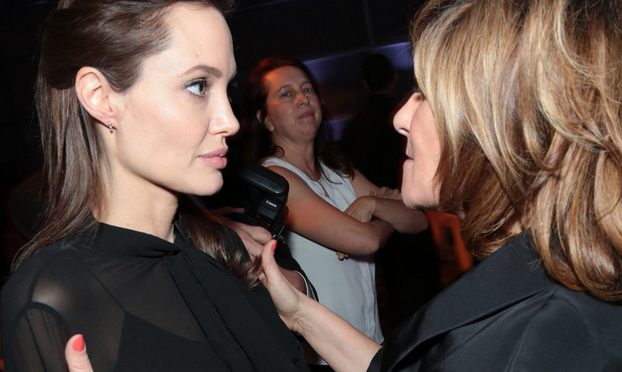
Here’s the thing, though: we also kind of already knew that.
The documents stolen from Sony Entertainment have provided a ton of confirmatory evidence about a Hollywood frat culture we’ve already had plenty of reason to suspect was the environment wherein most major movie decisions are made. We already knew that the highest level of Hollywood is predominantly White and predominantly male. Chris Rock recently reminded us that Hollywood is an overwhelmingly “White industry“, a message that is reinforced in his recent pseudo-autobiographical film Top Five. Even as Steve McQueen confesses that 12 Years a Slave could only have been made in American Hollywood, the director also describes the reluctance that major studios had in tackling that subject matter. A decade ago, Justin Lin also discussed the challenges that come with trying to make a non-White film in White Hollywood.
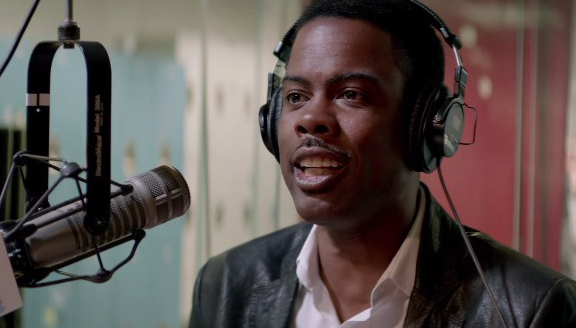
I’m disturbed that only now are we paying attention to what these minority filmmakers are saying. It’s as if we are more convinced by Aaron Sorkin’s clearly bullshit declaration that “there are no Asian American movie stars” than we are by the blistering writing of one of Hollywood’s most successful Black comedic eldermen.
Meanwhile, this week, Aaron Sorkin implored mainstream media to stop contributing to “NSA gate’s” far seedier second cousin. And, y’know what, guys? He’s right.
The hacked emails released from Sony Entertainment really are of limited newsworthiness. The most significant disclosure from these emails is that big-budget Hollywood is almost entirely motivated by a bottom line calculus — one that assumes that White audiences are more numerous than people of colour, and that these White audiences like to see themselves in film as much as people of colour do — and that this, combined with the existing lack of diversity in these Hollywood boardrooms encourages some truly bad behaviour on race and gender.
Aaron Sorkin’s leaked email puts a fine point on the writer’s own diversity problem, but one that we already had ample reason to suspect existed. Lest we forget, every one of Sorkin’s shows basically centers around a White male patriarch struggling with the White Man’s Burden while decentralizing what few characters of colour are included. In one season of the West Wing, a hate-motivated attempted public lynching of African American staffer, Charlie, inspires a series of complex emotional reactions in all characters — except, Charlie.
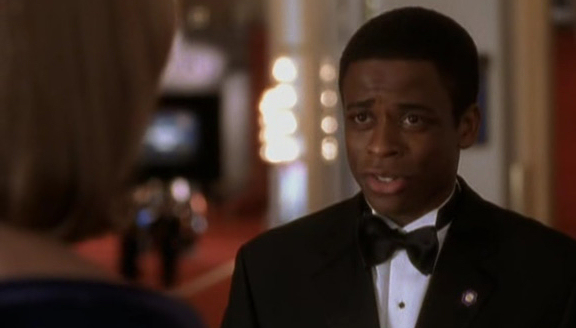
In short, if you didn’t already know that Hollywood executives have it backwards on race and gender, you weren’t paying attention. For the most part, the Sony emails are less a compelling demonstration of Hollywood’s diversity problem, and more a voyeuristic opportunity to pillory Hollywood executives we all love to hate.
Don’t get me twisted: I absolutely find Hollywood’s diversity problem troubling. Movie executives deserve to have their feet put to the fire over problematic attitudes on race and gender. Sorkin, for instance, has no excuse for not knowing that Asian American movie stars exist if for no other reason than because he employs one (okay, an Asian Brit) in Dev Patel, who before his turn on The Newsroom shot to stardom with his award-winning lead role in Slumdog Millionaire, as well as a supporting role in The Best Exotic Marigold Hotel.

But, I’m deeply troubled by what it says about us if in our enthusiasm to castigate the archaic mentalities of writers and producers like Sorkin, we eagerly consume the salacious details of the Sony hack without a mind to the larger issues that are involved with excusing what this attack really was: cyberterrorism with the intention of limiting artistic free speech.
The Guardians of Peace hacker group that breached Sony security is affiliated with the North Korean government and allegedly targeted the studio in retaliation for the upcoming James Franco and Seth Rogen comedy, The Interview. The hackers took issue with the film’s premise involving an assassination attempt on North Korean leader Kim Jong-Un.
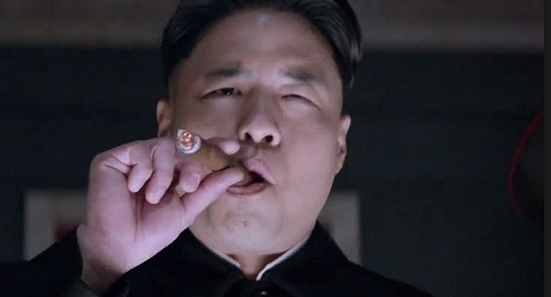
Now, of course, I think the The Interview is terribly racist in both its conception and its execution. It’s hardly a project that I would ordinarily defend; not only is it reportedly chock full of shitty anti-Asian stereotypes, but it’s also, as one Sony executive themselves put it, “desperately unfunny“. I would very much prefer that the The Interview be chalked up to a bad investment on the part of Sony, and all reels of the film be shut away deep in the Sony vaults never to see the light of day (sorry, Randall Park) or, maybe, burned.
That being said, I don’t think Sony executives should pull The Interview because they were terrorized into the decision.
Hollywood has had a long history of using film for political criticism of governments both foreign and domestic; we should protect that freedom of filmmakers to use their art to make us uncomfortable (even if it comes in the form of a crapfest like The Interview). If today we give a pass to a North Korean hacking collective when they seek to silence a shitty movie like The Interview because it embarrasses an unlikable North Korean leader, what happens when tomorrow they decide that Steve Yeun’s upcoming Aquariums of Pyongyang — based on a book that is heavily critical of the North Korean government in its documentation of the experiences of prisoners in North Korean gulags — is just as problematic?
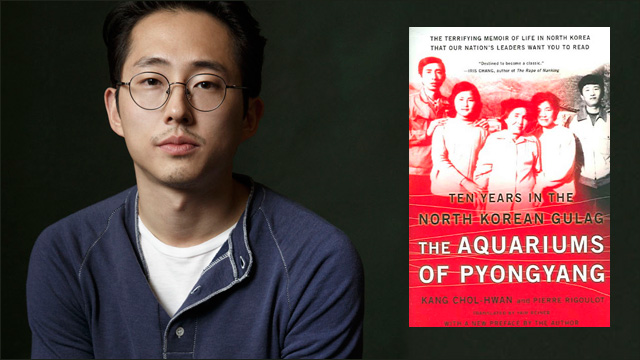
When executives can reasonably fear having their entire security breached as punishment for tackling politically sensitive material, what do we think will happen the next time some up-and-coming minority filmmaker tries to pitch a movie about the Rape of Nanking; about Comfort Women; about the Cultural Revolution; about apartheid; or even about chattel slavery?
Our condoning of this cyber-attack can only serve to tell movie executives — who are already skittish about committing to serious films about people of colour — that they should be even less courageous, and less willing to invest in, controversial material. Our tolerance of this hack can only lead to executives adopting the safe route, leading to more popcorn-fluffy blockbuster eye candy, where the plotlines are so empty as to disturb no one but at least the explosions are massive.
Another major issue with the Sony hack is our culture’s growing entitlement to the private lives of the ostensibly famous. I believe that the public has a right to explore documents released by whistle-blowers like Edward Snowden, because not only do they pertain to the abusive and illegal machinations of the federal government, but they also contain information of critical importance for holding our elected officials accountable. But the Sony executives are members of a private organization, and their emails were neither voluntarily distributed nor obtained through the actions of a moral whistle-blower. These private exchanges were stolen by a third party for the purposes of both doxxing and terrorizing the emails’ senders.

When Jennifer Lawrence’s cellphone images were hacked and nude selfies were spread around the internet, feminists and progressives were rightfully outraged. Not only was this a clear violation of Lawrence’s body and sexuality, but also of her privacy. Voyeurs reasoned that once the photos of Lawrence made their way online, their complicity in the hacking crime was mitigated by their own salacious curiousity; countless feminists have discussed the problem with this assertion. There is little distinction between that rationale, and the rationale of those who are reading about the banal drama between Amy Pascal and Angelina Jolie just to satisfy their own tabloid-like interest.
As Caitlin Dewey points out for The Washington Post, there is, of course, light years of difference in “degrees of wrong” when it comes to leaking a nude selfie versus releasing bunches of emails that mostly contain little more than schoolyard name-calling. But even Dewey notes the troubling moral relativism that comes with on the one hand expressing outrage over “The Fappening” (a shitty name if ever there was one), while on the other hand defending the hacks of Sony executives, simply because here the targets are “richer” and more “powerful” than J-Law (who, by the way, is pretty rich and powerful in her own right). Dewey doesn’t find that moral relativism particularly disturbing; I do.
No one deserves to have their private lives exposed to the world as a form of silencing. That includes Jennifer Lawrence and the female gamers of Gamergate. But, yes, that also includes the unlikable movie executives of Hollywood who are using their wealth, power, and privilege to maintain an ongoing marginalization of filmmakers and actors of colour, and women.
We already know Hollywood has a diversity problem. The Sony hack has only confirmed that these executives are as shitty in private as they are in public. If we are going to learn anything from the Sony hack, I think it should not be that we can selectively condone these kinds of criminal breaches simply because we dislike their targets; instead, we should condemn these attacks and any other extralegal mechanism for arriving at the goal of changing the business of Hollywood. We should want Hollywood to diversify, but we should arrive at that end-result by winning the argument, not by condoning cyber-terrorism.
Further, our take-home message from the emails that have already been publicized must be that the solution to diversifying Hollywood should not lie in the hands of people like Aaron Sorkin or Amy Pascal. These are not the kinds of people we should want telling stories of women and people of colour. No amount of lobbying Sorkin is going to fundamentally change his outlook on minority actors, and make him suddenly, magically progressive on the subject.
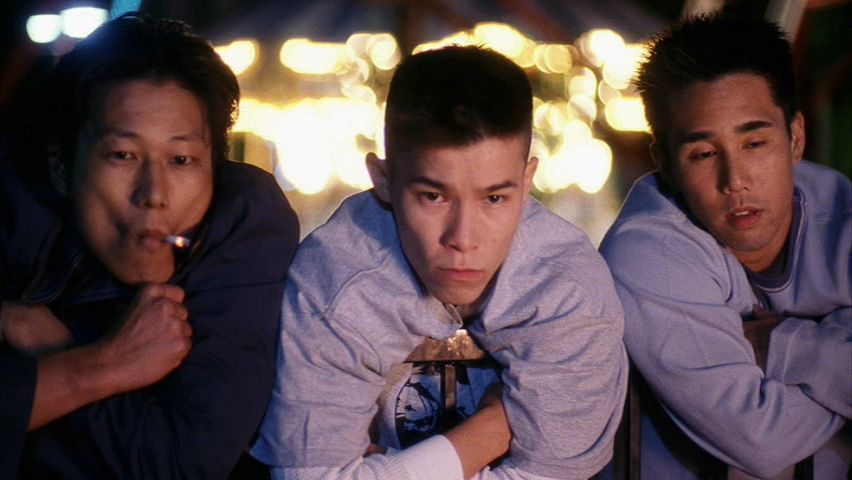
Hollywood is a “White industry”. Measuring our gains by the casting of a Black Human Torch — or the lack of diverse casting in Girls or Exodus: Gods and Kings — doesn’t fundamentally change that problem. Instead, if we are going to pay attention to information from the Sony hack, we should only do so insofar as it offers further evidence that our advocacy for token casting choices isn’t radical enough. It only seeks a handout from White producers and directors who already have shitty outlooks on race. Instead, we need to focus our support on independent films like Top Five, Best Man Holiday, Fruitvale Station, 12 Years a Slave, Pariah, The Namesake, and Better Luck Tomorrow among a host of other minority-conceived and -produced projects; and perhaps even on minority-conceived sitcoms like Black-ish and Fresh Off The Boat (which just announced a spring premiere date).
The solution to Hollywood’s diversity problem won’t be to change Aaron Sorkin’s mind. It will be to disempower people like Aaron Sorkin, and to instead elevate our own, better, minority writer who — unlike Aaron Sorkin — doesn’t need any convincing that diverse stories matter.
Update: A message purportedly from the “Guardians of Peace” hacker collective that took down Sony is now issuing a warning to moviegoers planning to watch “The Interview”. Reports the New York Post:
“Warning. We will clearly show it to you at the very time and places ‘The Interview’ be shown, including the premiere, how bitter fate those who seek fun in terror should be doomed to,” a note allegedly written by the “Guardians of Peace” read.
“Soon all the world will see what an awful movie Sony Pictures Entertainment has made. The world will be full of fear. Remember the 11th of September 2001. We recommend you to keep yourself distant from the places at that time. (If your house is nearby, you’d better leave.) Whatever comes in the coming days is called by the greed of Sony Pictures Entertainment. All the world will denounce the SONY.”
Since the hackers are operating anonymously, this message is pretty much unverifiable as originating from the same group. However, I post this update to again remind us again that this hack was an act of cyberterrorism designed to limit free speech by silencing a (shitty, shitty, racist) movie. We need to focus our attention less on the drama of these emails, and more on asking ourselves whether we accept how these emails came to be available to us. Again, if we think “Guardians of Peace” thinks The Interview is an awful movie, what do you think they will think about Aquariums of Pyongyang, a necessary film that deserves to be made?
Update: Relevant to this post, Sony has now cancelled its NYC premiere of The Interview, and several major theatre chains are also pulling the film from the weekend’s roster.
